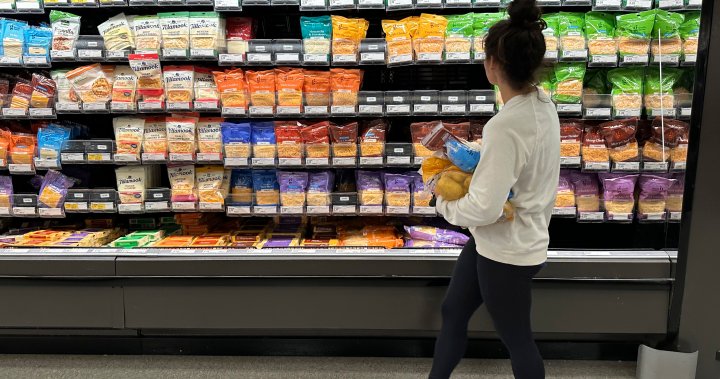Nearly two-thirds of Canadians are concerned about inflation at the grocery store, despite the fact that food inflation has been decreasing. A recent Leger survey found that 30% of Canadians believe grocery stores are increasing prices to boost profit margins, while 26% attribute it to global economic factors, and 20% blame the federal government. In April, food inflation was at 1.4%, contributing to an overall inflation rate of 2.7% as reported by Statistics Canada. Over the past three years, grocery prices have risen by 21.4%, putting pressure on Canadian households.
Major grocery retailers deny profiting excessively from inflation, amidst criticism and public outcry over rising food prices. A consumer-led boycott of Loblaw-owned stores in May generated awareness among 70% of Canadians, with 58% expressing support for the boycott. However, only 18% of respondents mentioned participating in the boycott. The survey shows that rural and urban residents have differing opinions on the effectiveness of the boycott, with urban residents being more likely to support and participate in it.
The survey also highlights the challenges faced by rural residents in participating in the Loblaw boycott, with urban residents being more supportive and active in the movement. Additionally, nearly half of Canadians feel that targeting only Loblaw in the boycott is unfair, and the majority do not believe that the boycott will lead to lower grocery prices. Urban respondents are more optimistic about the impact of the boycott, while rural Canadians are more skeptical about its potential to lower prices.
For those taking part in the boycott, 40% are turning to big box stores like Costco or Walmart, 31% are shopping at other national grocery chains, and 23% are purchasing from independent local grocers. Rural participants in the boycott are more likely to support independent stores, while urban and suburban participants prefer larger retailers. The survey, conducted by Leger, included 1,519 Canadians and took place in May 2024. It focused on grocery inflation, the Loblaw boycott, and public opinions on grocers’ profits.
In conclusion, the majority of Canadians are concerned about rising food prices despite a decrease in food inflation. The boycott of Loblaw-owned stores has generated awareness and support among Canadians, but actual participation remains relatively low. The differing opinions between rural and urban residents highlight the challenges faced by those living outside urban areas in participating in such movements. Ultimately, the survey reflects a lack of confidence among Canadians that the boycott will lead to lower grocery prices, despite their concerns about inflation.


